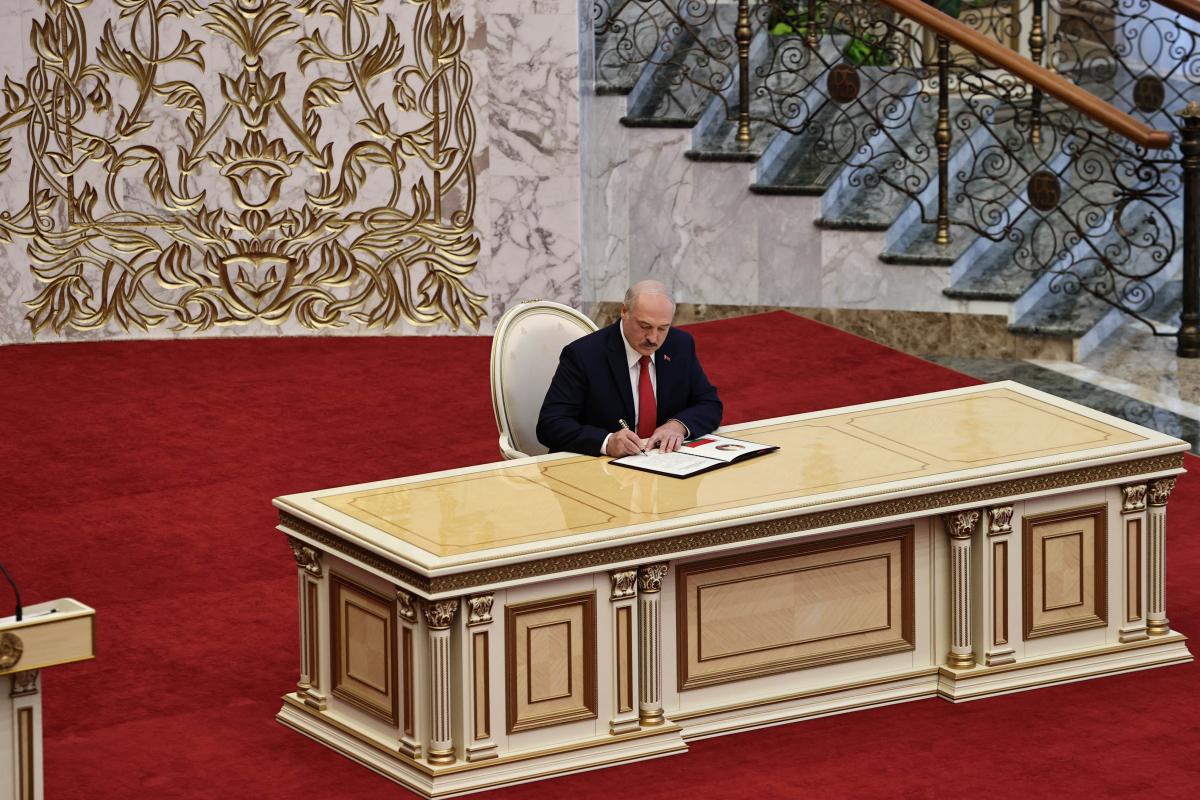
The European Union does not recognize the so-called "inauguration" of Alexander Lukashenko as President of Belarus.
"Recalling the Declaration by the High Representative on behalf of the European Union of September 11, the EU once again reiterates that the August 9 Belarus Presidential elections were neither free nor fair. The European Union does not recognize their falsified results. On this basis, the so-called 'inauguration' of September 23 2020 and the new mandate claimed by Alexander Lukashenko lack any democratic legitimacy," according to a Declaration by the High Representative on behalf of the European Union posted on the EU Council's website on September 24, 2020.
It is noted the "inauguration" directly contradicts the will of large parts of the Belarusian population, as expressed in numerous, unprecedented and peaceful protests since the elections, and serves to only further deepen the political crisis in Belarus.
Read also"Inauguration" does not legitimize Lukashenko as Belarus president – Kuleba"The European Union's position is clear: Belarusian citizens deserve the right to be represented by those they freely choose through new inclusive, transparent and credible elections," the Declaration said. "We stand in solidarity with them and fully support their democratic right to elect their President through new free and fair elections under the OSCE/ODIHR's supervision. We reiterate our expectation that the Belarusian authorities immediately refrain from any further repression and violence directed against the Belarusian people and immediately and unconditionally release all those detained, including political prisoners."
The EU says it remains convinced that an inclusive national dialogue and responding positively to the demands of the Belarusian people for new democratic elections are the only way forward in finding a way out of the serious political crisis in Belarus that respects the wishes of the Belarusian people. "In light of the current situation, the EU is reviewing its relations with Belarus," it said.
Belarus election: Reactions
- Lukashenko has repeatedly claimed "foreign interference" in the election and external efforts to foment the protests. He spoke with Russian President Vladimir Putin who had promised him comprehensive assistance upon request.
- On August 27, Putin suggested sending Russian security forces to suppress protests in Belarus.
- The European Union declared non-recognition of the Belarus election results and reached an agreement to impose sanctions against Belarusian officials in response to vote rigging and the use of violence against protesters.
- On September 15, the Verkhovna Rada of Ukraine adopted a statement on Belarus. Ukrainian lawmakers said the presidential elections in that country were unfair. They condemned repression against protesters and vowed support for sanctions to be introduced by the European Union against Belarusian officials.
- On September 14, Putin received Lukashenko in Russia's Sochi. During the meeting, Putin promised to lend US$1.5 billion to Belarus. After the meeting, the Kremlin announced they would recognize Lukashenko as the only legitimate president of Belarus.
- On September 23, Lukashenko was sworn in as President of Belarus during an inaugural ceremony in the Palace of Independence in Minsk.

